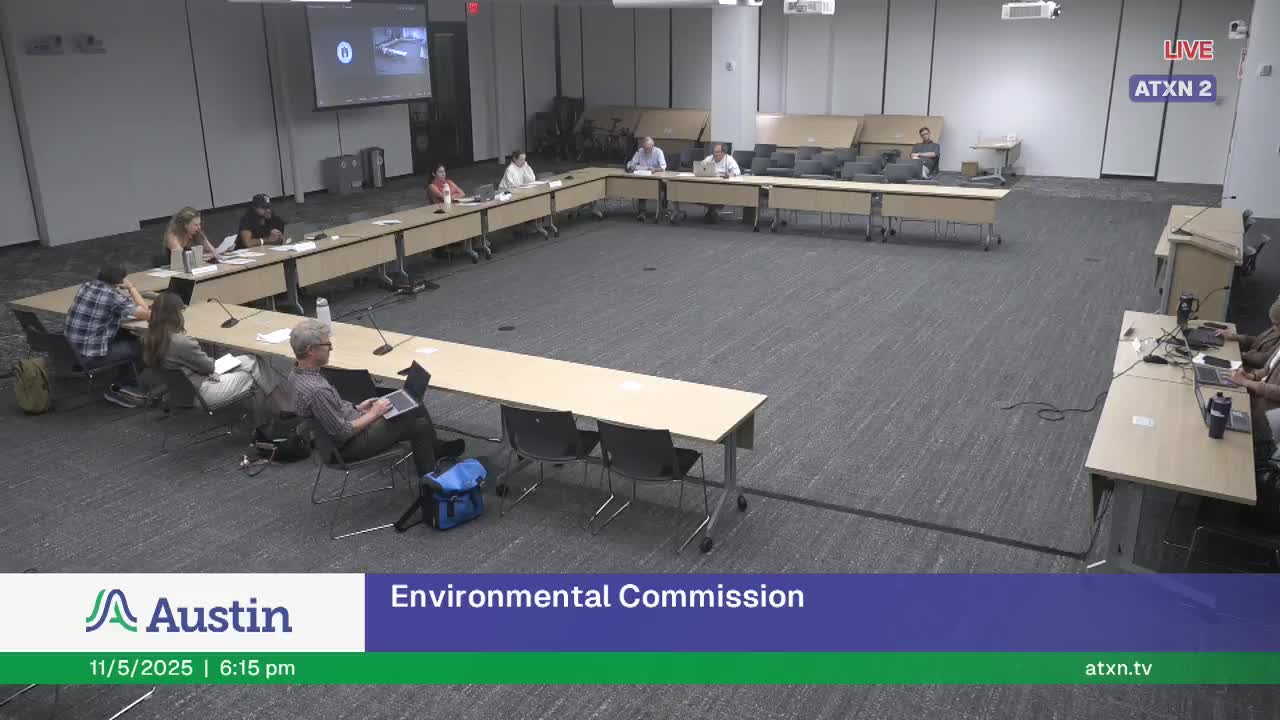Watershed outlines 2025 Texas legislation affecting Austin land‑use, ETJ and flood funding
Get AI-powered insights, summaries, and transcripts
Subscribe
Summary
Watershed Protection staff briefed the commission on several 2025 Texas bills that could affect Austin's land use, ETJ authority and flood‑response funding.
Watershed Protection staff presented an overview of bills the City monitored during the 2025 regular and special sessions and flagged those likely to affect Austin's flood, land‑use and water quality programs.
Kayla Champlin told the commission that Watershed monitored roughly 247 bills of department interest; about 30 ultimately became law. Major topics the department tracked included DEI‑related bills (five tracked, none passed), land‑use bills affecting lot size and residential by‑right conversions, bills to allow third‑party plan review (which would have limited city control over floodplain and water‑quality approvals), ash‑juniper removal bills, accessory‑dwelling unit and ADU language, and disannexation/ETJ bills.
Two bills singled out for local interest were Senate Bill 15, which created a new zoning allowance for 3,000‑square‑foot lots on certain large tracts (staff said city concerns were reduced after amendments), and SB 840, which allows residential use by right in some nonresidential base zoning categories; Watershed said it remained neutral on SB 840 because the bill preserved the city's ability to enforce water‑quality regulations.
Champlin reviewed HB 2512 as the session's partial fix to earlier changes (Senate Bill 2038 from 2023) that had allowed property‑by‑property ETJ releases. HB 2512 limits who may petition and allows property owners within a proposed release area to opt out; however, staff said sections that would have allowed enforcement related to development agreements were bracketed to Fort Worth and therefore would not apply to Austin.
On flood and disaster response, staff noted that the legislature passed supplemental disaster appropriations and created the new Texas Water Fund (approved via Proposition 4 on the November ballot) that dedicates $1 billion per year from existing sales tax revenue for statewide water projects. Champlin said the legislative packages also set aside funds for local grants and investments in flood‑warning systems and meteorological forecasting.
Commissioners asked follow‑up questions about how bills might be refiled, which close bills to watch for the next session (e.g., climate/environmental fee bills), whether PUDs and base‑zoning changes could permit residential conversion of former commercial zones, and practical impacts of disannexation near reservoirs and lakefronts.
What happens next: Watershed staff said most bills that passed took effect Sept. 1 and that departments are coordinating to ensure compliance and to monitor refiled bills ahead of the next legislature.
